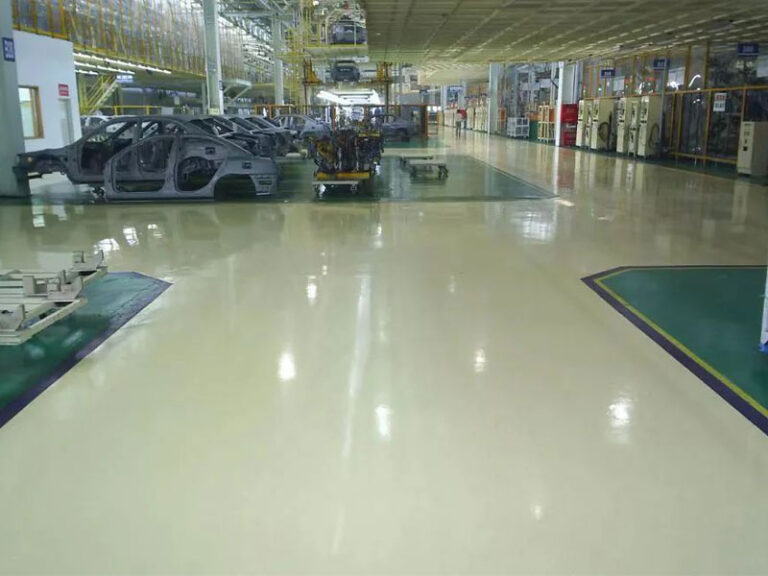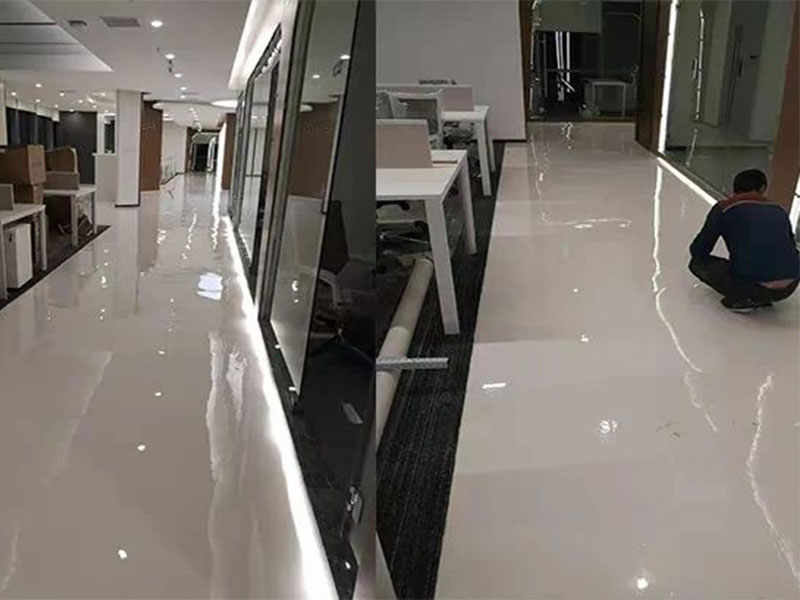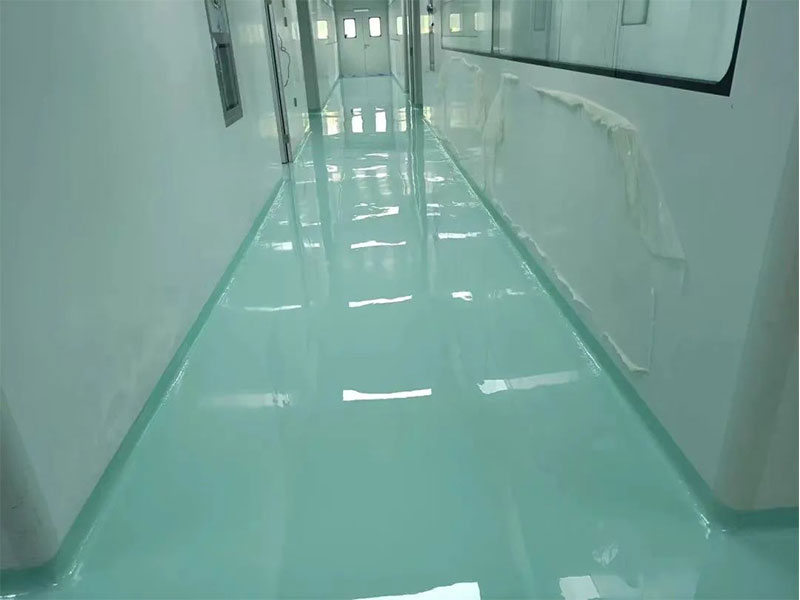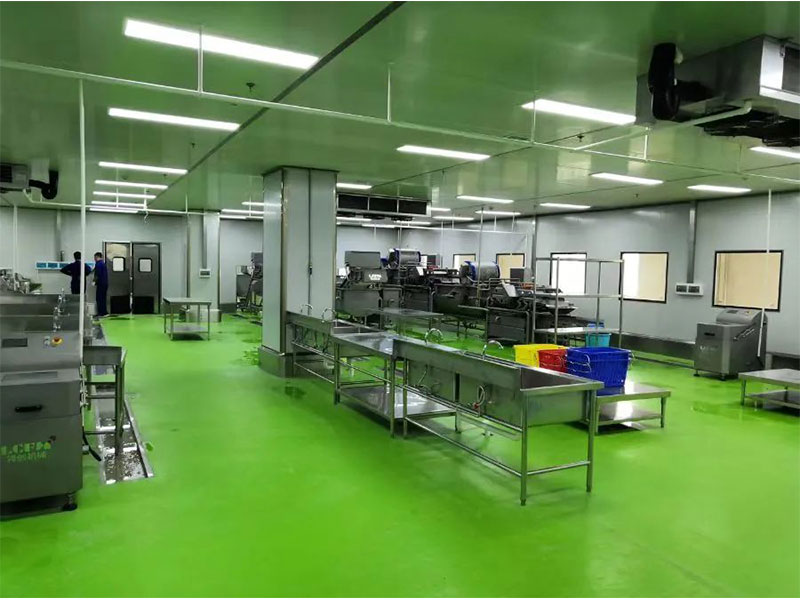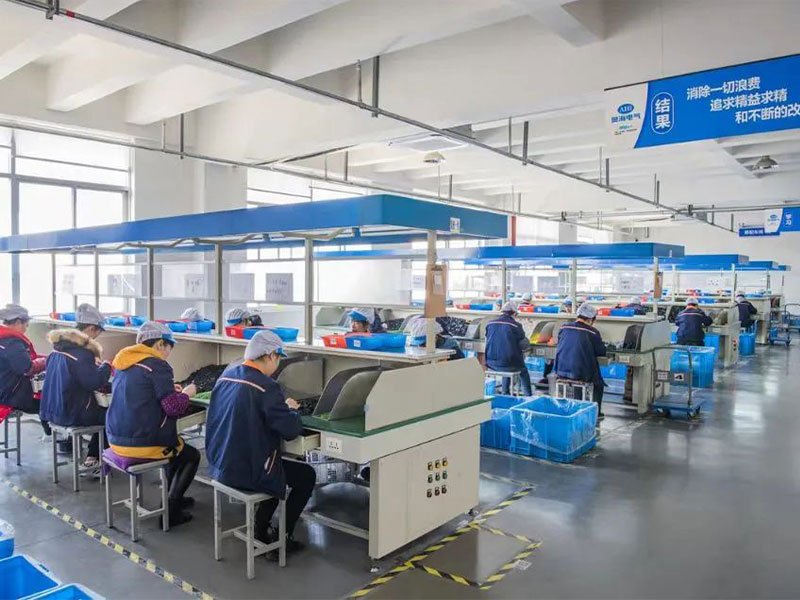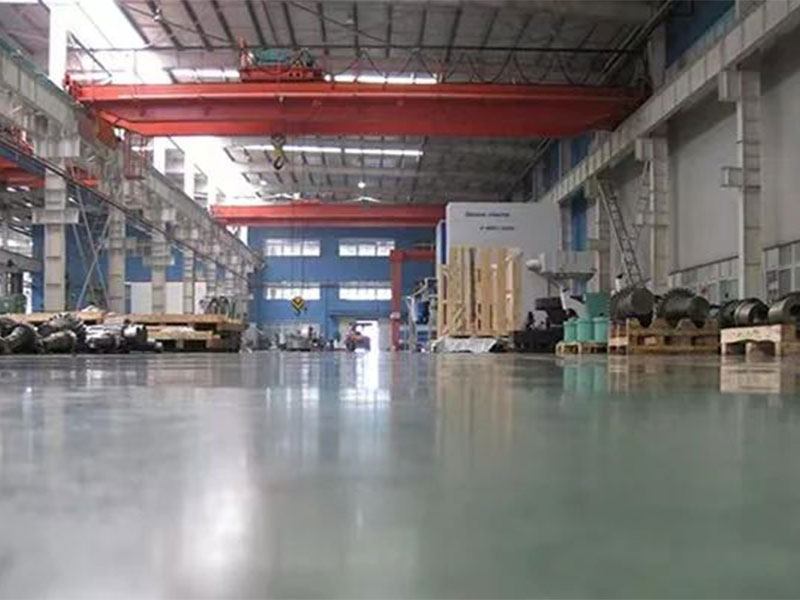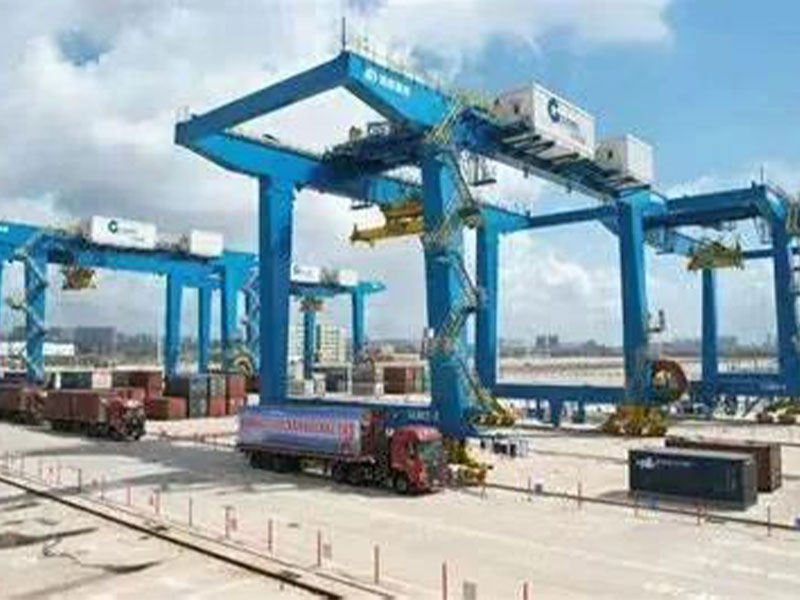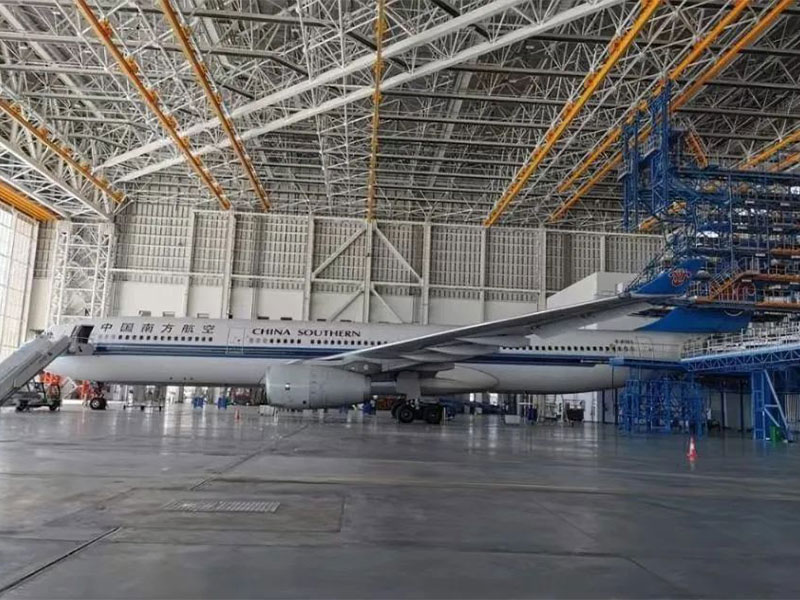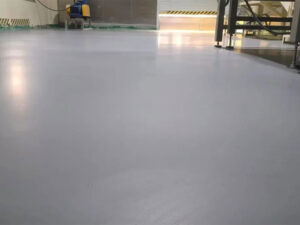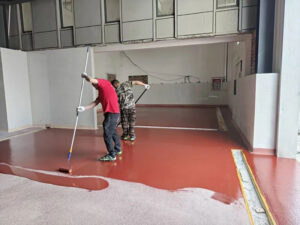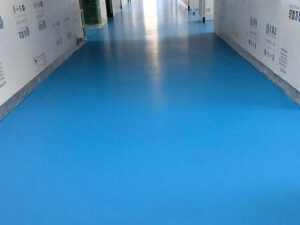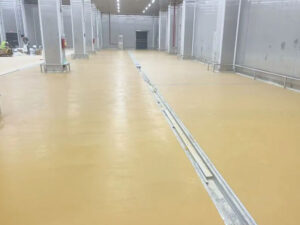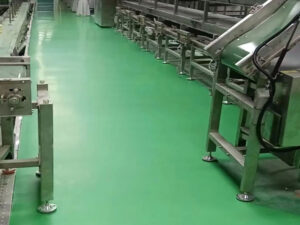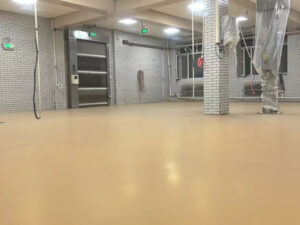1. مقدمة
تحتاج المناطق ذات الازدحام الشديد - مثل المستودعات والمستشفيات ومحلات البيع بالتجزئة - إلى أرضيات تتحمل الاستخدام الكثيف دون أن تتشقق أو تتلطخ أو تصبح زلقة. أرضيات الإيبوكسي هي واحدة من أفضل الأرضيات التجارية للمناطق ذات الازدحام الشديد بسبب متانتها الشديدة ومقاومتها للمواد الكيميائية وقلة صيانتها.
الإحصائيات الرئيسية: أرضيات إيبوكسي عالية الجودة تدوم طويلاً أكثر من 20 عاماً، مع 60% تكاليف صيانة أقل من الخرسانة (مجلة الأرضيات).
سنغطي في هذا الدليل ما يلي:
- لماذا الإيبوكسي هو أفضل الأرضيات ذات الازدحام الشديد
- الدليل الكامل ل خيارات الخدمة الخفيفة والمتوسطة والثقيلة والشديدة
- أفضل 5 أنواع من الإيبوكسي للاحتياجات المختلفة
- كيفية مقارنة الإيبوكسي بالخرسانة المصقولة والفينيل والخشب الصلب
- نصائح التركيب الاحترافية
2. لماذا الإيبوكسي هو أفضل أرضيات للمناطق ذات الازدحام الشديد
متانة لا مثيل لها
الإيبوكسي هو 3 أضعاف صلابة الخرسانة (معيار ASTM D4060)، مما يجعلها مثالية لـ
- الآلات الثقيلة (الرافعات الشوكية ورافعات المنصات)
- حركة المرور المستمر على الأقدام
- التآكل من جر المعدات
ميزات السلامة المحسّنة
- مقاوم للانزلاق تفي الخيارات (إضافات الكوارتز أو أكسيد الألومنيوم) بمعايير إدارة السلامة والصحة المهنية (المعامل ≥ 0.6).
- سطح سلس يمنع نمو البكتيريا - مثالي للمستشفيات والمنشآت الغذائية.
- مضاد للكهرباء الساكنة تحمي المتغيرات الإلكترونيات الحساسة في المختبرات ومراكز البيانات.
سهولة الصيانة
لا تتطلب أرضيات الإيبوكسي سوى الكنس والمسح من حين لآخر، مما يقلل من تكاليف التنظيف على المدى الطويل.
3. الدليل الكامل لخيارات الخدمة الخفيفة والمتوسطة والثقيلة والشديدة
أرضيات الخدمة الخفيفة (1-3 أطنان/متر مربع)
مثالية لـ: المكاتب ومحلات البيع بالتجزئة والجراجات السكنية
الميزات الرئيسية:
- يدعم حركة السير على الأقدام والمركبات ذات الإطارات المطاطية العرضية
- لمسة نهائية جذابة مع خيارات ألوان متعددة
- تركيب فعال من حيث التكلفة مع أقل قدر ممكن من التعطيل
أفضل خيارات الأرضيات خفيفة الوزن:
- أرضيات الإيبوكسي رقيقة الطلاء
- الأفضل لـ المكاتب الصغيرة، ومختبرات الإلكترونيات
- سمك 0.5 مم يوفر سطحًا مقاومًا للغبار/مقاومًا للماء
- سهولة التنظيف ولكن مقاومة التآكل محدودة
- الأرضيات الأسمنتية ذاتية التسوية
- الأفضل لـ الاستوديوهات الإبداعية والمساحات السكنية
- تركيب سريع مع لمسة نهائية سلسة
- حل مناسب للميزانية للاستخدام التجاري الخفيف
"بالنسبة للمرائب المنزلية التي تحتاج إلى حماية أساسية، يوفر طلاء الإيبوكسي الرقيق أفضل طلاء لأرضية المرآب بأقل تكلفة."
أرضيات الخدمة المتوسطة (3-8 أطنان/متر مربع)
مثالية لـ: المستودعات ومناطق عمل المصانع
الميزات الرئيسية:
- مناولة الرافعات الشوكية والبضائع متوسطة الوزن
- متانة محسّنة مقابل خيارات الخدمة الخفيفة
- انخفاض تكاليف الصيانة على المدى الطويل
أفضل خيارات الأرضيات متوسطة الحجم:
- أرضيات الإيبوكسي هاون
- أفضل الأرضيات التجارية للمناطق ذات الازدحام الشديد مثل مراكز التوزيع
- معززة بالرمل لمقاومة أكبر للصدمات بمقدار 5 أضعاف
- يمنع التشققات في المناطق ذات الحركة العالية
- أرضيات من البولي يوريثين
- أفضل الأرضيات للمناطق ذات الرطوبة العالية (مصانع الأغذية/الأدوية)
- سطح مرن يمتص الصدمات
- مقاومة للمواد الكيميائية وصحية
نصيحة احترافية: للحصول على أفضل الأرضيات لمناطق المداخل ذات الازدحام الشديد، اختر البولي يوريثين لمقاومته للانزلاق.
أرضيات الخدمة الشاقة (أكثر من 8 أطنان/متر مربع)
مثالية لـ: المراكز اللوجستية، مصانع التصنيع
الميزات الرئيسية:
- يتحمل حركة مرور الرافعة الشوكية/الحمولة المستمرة
- مقاومة شديدة للتآكل/التصادم
- يتطلب تركيب احترافي
أفضل خيارات الأرضيات للخدمة الشاقة:
- أرضيات من الركام المعدني
- أفضل طلاء أرضيات إيبوكسي صناعي للمصانع
- طبقة سطحية صلبة من الماس
- عمر افتراضي يزيد عن 10 سنوات في ظل ظروف قاسية
- إيبوكسي ذاتي التسوية ذاتي التحمل الثقيل
- أفضل أرضيات إيبوكسي لمصانع السيارات
- يعالج السطح السلس الانسكابات النفطية/الكيميائية
- يتحمل حمولة مركبة تزن 15 طناً
*"للحصول على أفضل إيبوكسي لأرضية المرآب التي تتحمل مصاعد السيارات، اختر إيبوكسي 4 مم شديد التحمل"*.
الأرضيات شديدة التحمل (أكثر من 20 طن/متر مربع)
مثالية لـ: الموانئ، والمطارات، والمنشآت النووية
الميزات الرئيسية:
- تدعم الرافعات والطائرات والحمولات الضخمة
- مقاومة التآكل من الدرجة البحرية
- هندسة متخصصة مطلوبة
أفضل خيارات الخدمة القصوى:
- الخرسانة المسلحة بالألياف الفولاذية
- أفضل الأرضيات لحركة المرور الكثيفة في الموانئ
- فولاذ مدمج يمنع التشقق
- عمر خدمة يزيد عن 25 عاماً
- خرسانة عالية الأداء للغاية
- أفضل طلاء أرضيات صناعي للخرسانة في البيئات القاسية
- أقوى 3 مرات من الخرسانة القياسية
- مادة كيميائية/مقاومة للطقس
تحليل مقارن: أفضل أنواع الأرضيات عالية الحركة
| النوع | سعة الحمولة | الأفضل لـ | التكلفة/قدم مربع |
|---|---|---|---|
| طلاء الإيبوكسي الرقيق | 1-3 أطنان | المكاتب | $2-4 |
| ملاط الإيبوكسي | 3-8 أطنان | المستودعات | $4-6 |
| الركام المعدني | 8-15 طناً | المصانع | $6-8 |
| الخرسانة المصنوعة من الألياف الفولاذية | أكثر من 20 طناً | الموانئ | $8-12 |
عوامل الاختيار الرئيسية للأرضيات ذات الكثافة المرورية العالية
- نوع حركة المرور (القدم مقابل الرافعة الشوكية مقابل حمولة 20 طنًا)
- التعرض للمواد الكيميائية (الزيت، والأحماض، والمياه المالحة)
- مستويات الرطوبة (المناطق المغلقة مقابل المناطق الخارجية/الرطبة)
- الميزانية مقابل العمر الافتراضي (التكلفة الأولية مقابل تكلفة التكلفة الإجمالية للملكية لمدة 10 سنوات)
نصائح التركيب الاحترافية
- إعداد السطح أمر بالغ الأهمية: يجب أن تكون الخرسانة جافة (<8% رطوبة) وخشنة (CSP 3+)
- تحذير اصنعها بنفسك: الإيبوكسي ذو الطبقة الرقيقة فقط المناسب لمرآب السيارات (استخدم أفضل أطقم إيبوكسي لأرضية المرآب المصنوعة يدويًا)
- للخدمة الشاقة: استعن دائماً بعمال تركيب معتمدين
4. أفضل 5 أفضل أرضيات إيبوكسي للمناطق ذات الازدحام الشديد
الإيبوكسي ذاتي التسوية - الأفضل للمستودعات وصالات العرض
- الإيجابيات:
- طبقة نهائية لامعة وناعمة تخفي عيوب الأرضية السفلية
- يدوم أكثر من 25 عامًا مع العناية المناسبة
- السلبيات: تكلفة أعلى ($2-4/قدم مربع.)
الإيبوكسي المحشو بالكوارتز - الأفضل للمستشفيات والمدارس
- الإيجابيات:
- مقاومة فائقة للانزلاق (حتى عند البلل)
- خيارات الألوان الزخرفية
- السلبيات: يتطلب تركيب احترافي
إيبوكسي الهاون - الأفضل للاستخدام الصناعي الثقيل
- الإيجابيات:
- 3-10 مم-يتعامل مع الصدمات الشديدة
- يقاوم المواد الكيميائية (الزيوت والأحماض والمذيبات)
- السلبيات: الأغلى ثمناً ($3-6/قدم مربع.)
4. إيبوكسي مضاد للكهرباء الساكنة - الأفضل لمراكز البيانات
- الإيجابيات:
- يمنع التراكم الساكن (مقاومة السطح ≤10 ⁶Ω)
- لا تزال متينة للغاية
- السلبيات: يحتاج إلى اختبار توصيل منتظم
إيبوكسي مقاوم للأشعة فوق البنفسجية - الأفضل للأماكن الخارجية والمرائب
- الإيجابيات:
- لن يصفرّ لونها في ضوء الشمس
- يتحمل -30 درجة مئوية إلى 80 درجة مئوية درجات الحرارة
- السلبيات: خيارات ألوان محدودة
5. كيفية اختيار أفضل الأرضيات للمناطق ذات الازدحام الشديد
تقييم نوع حركة المرور
- حركة المرور على الأقدام فقط؟ إيبوكسي ذاتي التسوية 1-2 مم
- مركبات ثقيلة؟ إيبوكسي ملاط 3 مم+ إيبوكسي
النظر في التعرض للمواد الكيميائية
- الزيت/الشحم: إيبوكسي قياسي
- الأحماض/القلويات القوية: الإيبوكسي الفينولي
الميزانية مقابل العمر الافتراضي
| النوع | التكلفة (لكل قدم مربع) | العمر الافتراضي |
|---|---|---|
| التسوية الذاتية | $2-4 | أكثر من 20 عامًا |
| الهاون | $3-6 | أكثر من 30 عامًا |
نصيحة: الطلاءات الإيبوكسية الرقيقة ($1-2/قدم مربع) تصلح للجراجات ولكنها تحتاج إلى إعادة طلاء كل 5-8 سنوات.
6. الإيبوكسي مقابل أفضل الأرضيات الأخرى للأرضيات ذات الازدحام الشديد
| الميزة | أرضيات الإيبوكسي | خرسانة مصقولة | ألواح الفينيل |
|---|---|---|---|
| المتانة | ⭐⭐⭐⭐⭐ | ⭐⭐⭐⭐ | ⭐⭐ |
| مقاومة الانزلاق | ⭐⭐⭐⭐ | ⭐⭐⭐ | ⭐⭐⭐ |
| الصيانة | منخفضة | متوسط | عالية |
| الأفضل لـ | صناعي | البيع بالتجزئة | تجاري خفيف |
الحكم: الإيبوكسي هو أفضل الأرضيات لحركة المرور الكثيفة في الظروف القاسية.
7. نصائح تركيب لأرضيات الإيبوكسي التي تدوم طويلاً
إعداد السطح أمر بالغ الأهمية
- يجب أن تكون رطوبة الخرسانة <8% (اختبار الصفيحة البلاستيكية).
- يجب أن يكون الأرضي إلى خشونة CSP 3+3+ للالتصاق.
استعن بمحترف للمشاريع الكبيرة
- مخاطر اصنعها بنفسك: خلط غير سليم = معالجة ضعيفة (يوصى به فقط في المرائب الصغيرة).
- للحصول على أفضل النتائج: الاستخدام معتمد من ICRI المثبتات.
8. الأسئلة الشائعة - أفضل الأرضيات للمناطق ذات الازدحام الشديد
س1: هل يمكن للأرضيات الإيبوكسي التعامل مع الرافعات الشوكية؟
ج: نعم-يدعم الإيبوكسي الهاون ما يزيد عن 5 أطنان (سمك 5 مم كحد أدنى).
س2: متى يمكنك المشي/القيادة على أرضيات الإيبوكسي؟
ج: 24 ساعة لحركة السير على الأقدام، و7 أيام للمركبات.
س3: كيف يمكن إصلاح خدوش أرضية الإيبوكسي؟
ج: يعمل الصنفرة الخفيفة + إعادة الطلاء على الأضرار الصغيرة؛ أما الإصلاحات الكبيرة فتحتاج إلى محترفين.
س4: ما هي أفضل الأرضيات للسلالم ذات الازدحام الشديد؟
ج: يوفر الإيبوكسي المملوء بالكوارتز مقاومة مثالية للانزلاق.
س5: أفضل أرضيات الفينيل للمناطق ذات الازدحام الشديد؟
ج: يعمل البلاط الخرساني المنخفض منخفض الكثافة من الدرجة التجارية (طبقة تآكل 20 مل+ مل) مع حركة المرور المتوسطة.
س6: ما هي أفضل الأرضيات للحيوانات الأليفة وذات الازدحام الشديد؟
ج: أرضيات البولي يوريثين - مقاومة للخدش وسهلة التنظيف.
س7: ما المدة التي يدوم فيها الإيبوكسي الصناعي؟
ج: يدوم الإيبوكسي شديد التحمل الذي يتم تركيبه بشكل صحيح من 15 إلى 25 سنة.
9. الخلاصة - أفضل خيار للأرضيات ذات الحركة المرورية العالية
بالنسبة للمستودعات والجراجات والأماكن التجارية، توفر أرضيات الإيبوكسي أفضل متانة وأمان وفعالية من حيث التكلفة.
